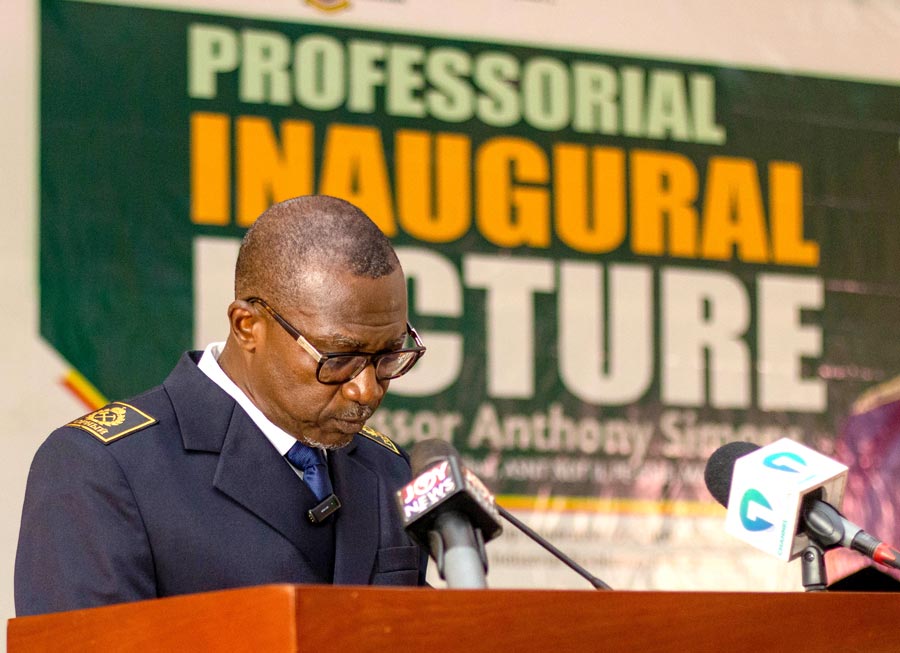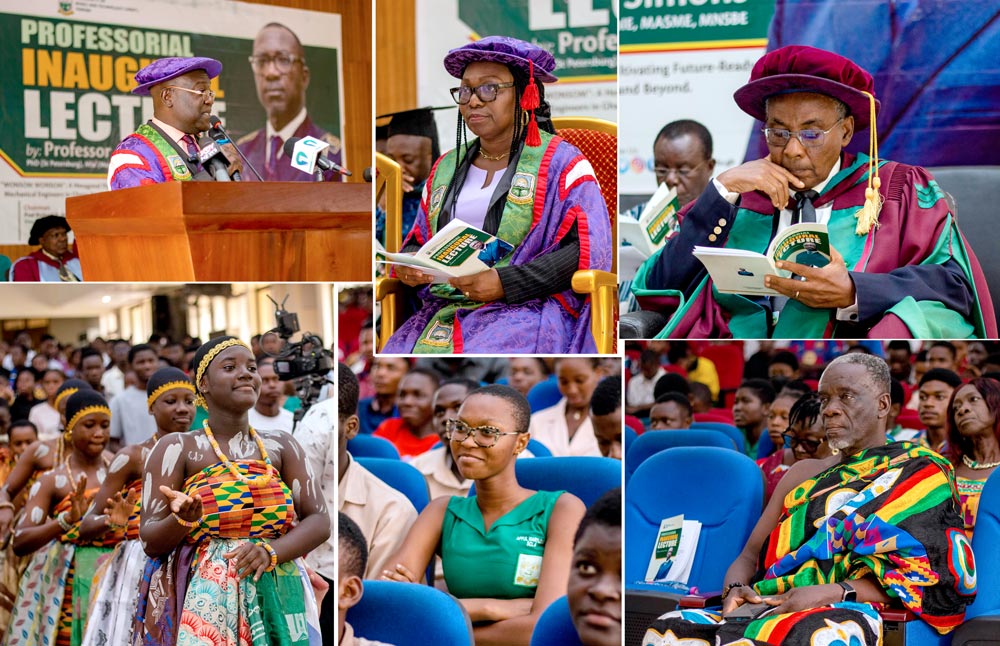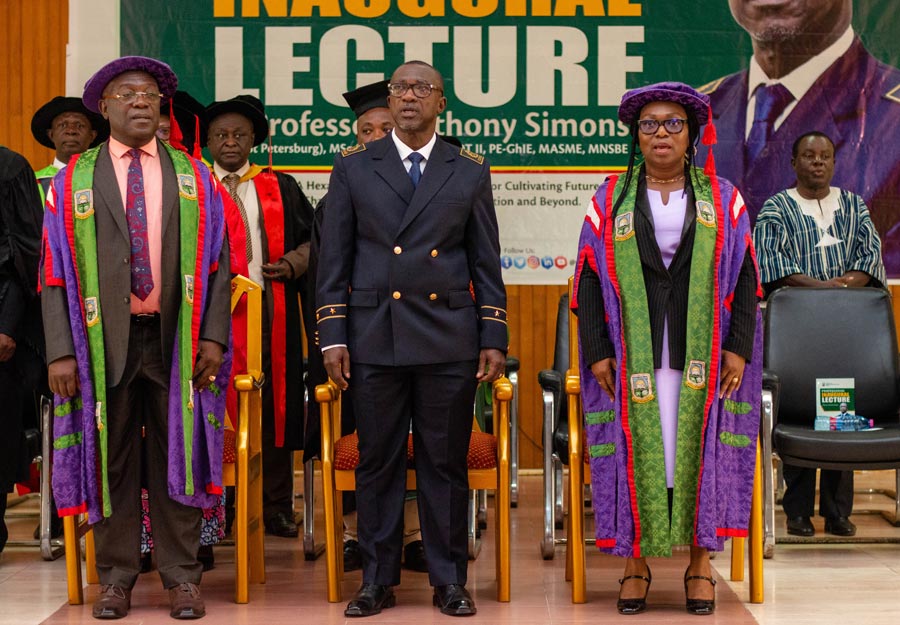Professor Anthony Simons, a distinguished professor of Mechanical Engineering and immediate past Pro Vice Chancellor of the University of Mines and Technology (UMaT), has delivered an inaugural lecture urging collective responsibility in preparing Ghanaian engineers for the future.
The lecture, titled “WONSOM WONSOM: A Hexagonal Partnership Imperative for Cultivating Future-Ready Mechanical Engineers in Ghana for the Fifth Industrial Revolution and Beyond”, was delivered on Thursday, 10th July 2025 at the University Auditorium. The phrase “WONSOM WONSOM”, meaning “all hands on deck”, was adopted as a rallying call for academia, industry, government, professional bodies, students and communities to work together in producing engineers equipped for the challenges of tomorrow.
Recounting his journey from humble beginnings, Professor Simons traced his personal and professional journey, from his early years in Takoradi to advanced training in Russia and a distinguished academic career in Ghana. He highlighted significant contributions in applied mechanical engineering, including the development of braking systems for heavy-duty inclined belt conveyors, the creation of eco-friendly brake pads using periwinkle shells and coconut shell ash, and his input in drafting Ghana’s National Welding Policy.
Professor Simons also shared outcomes of his industrial projects, such as energy efficiency interventions at the Shell Bitumen Plant in Takoradi, which reduced heat losses by 78 percent and recovered 0.868 kW of exhaust heat through system redesigns. His research explored innovative solutions including the use of LPG as a vehicle fuel, the impact of adulterated fuels on engines, and predictive maintenance frameworks employing artificial intelligence.
Some studies supervised under his leadership demonstrated that municipal solid waste could generate up to 400 megawatts of electricity which is enough to power a population of eight million while collaborative work in mining operations developed centralised lubrication systems for excavators, yielding annual savings of over US$62,000.

Professor Simons presented a critical review of Ghana’s mechanical engineering curriculum. While strong in areas such as fluid and solid mechanics and thermal science, he observed persistent weaknesses in ICT education and infrastructure which are vital for robotics, automation and advanced manufacturing. He therefore called on policy makers to consider making ICT a core subject from the basic to secondary levels of educations.
To bridge these gaps, he called for reforms such as integrating industry-standard design software, strengthening practical laboratory training, organising innovation-driven hackathons and deepening academia-industry partnerships. He also urged educators to adapt teaching approaches to Generation Z learners, who are more responsive to visual, collaborative and digital methods.
Central to his message was the concept of a “Hexagonal Partnership” built around six key pillars namely academia, industry, government, professional bodies, communities and students. This alliance, he stated, is necessary to modernise curricula, align research with industry needs, expand practical training opportunities, uphold ethical standards, and stimulate innovation in emerging fields such as robotics, additive manufacturing, renewable energy and data-driven engineering.
In his closing remarks, Professor Simons underscored the urgency of collective effort in shaping Ghana’s industrial future. “We must invest in the right structures, nurture a culture of collaboration, and close the critical gaps in skills and ethical grounding,” he said. “This future will not build itself, it will take WONSOM WONSOM, all hands on deck, to prepare our graduates not only to adapt to but to lead in the era of the Fifth Industrial Revolution.”

The inaugural lecture was chaired by the Vice Chancellor, Prof Richard Kwasi Amankwah.











